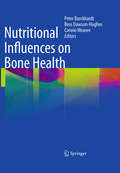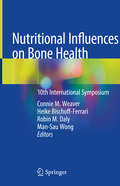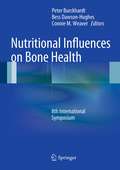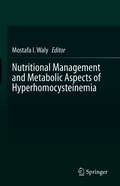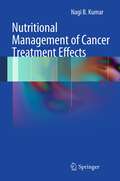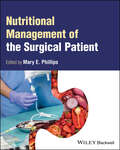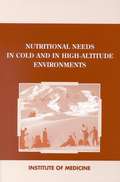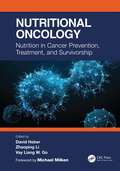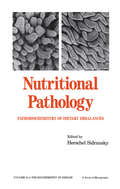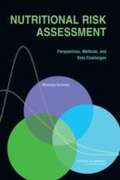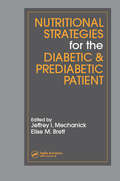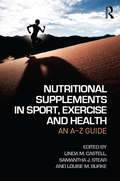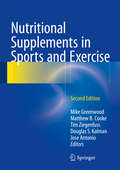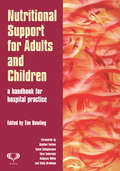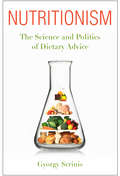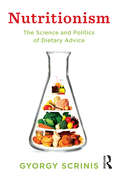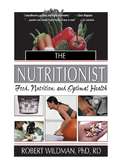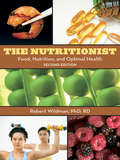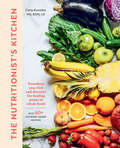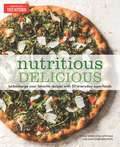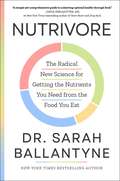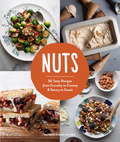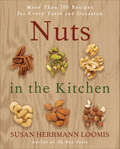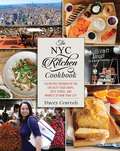- Table View
- List View
Nutritional Influences on Bone Health: 7th International Symposium
by Bess Dawson-Hughes Peter Burckhardt Connie M. WeaverThe seventh symposium on “Nutritional Aspects of Osteoporosis” continues to be the primary forum for scientists to focus on the impact of nutrition on bone health in general. Since 1991, the year of the first symposium, research in this field has increased impressively and has become an established part of research and science in osteology. This symposium in particular featured many global comparisons in diet and the effect on bone. As Western diet permeates more of the globe and the population continues to grow, it is meaningful to study the impact of these changes on bone health as diet is one of the few major modifable factors which in turn affects health care costs. Calcium, vitamin D, and acid-base balance continued to dominate the discussion. The symposium offered an opportunity to learn about theories and data in nutritional research concerning bone as well as methodological approaches to classify diets. The proceedings allow the reader to capture the new messages, to analyze the new scientific data presented, and to use the book as a source of references in this feld.<P> This work comprises papers from the 7th International Symposium on Nutritional Aspects of Osteoporosis in 2009 in Lausanne, Switzerland.
Nutritional Influences on Bone Health: 10th International Symposium
by Connie M. Weaver Heike Bischoff-Ferrari Robin M. Daly Man-Sau WongThis book comprehensively covers the topics and discussions covered at the 10th International Symposium on Nutritional Aspects of Osteoporosis. It is the only international meeting that exclusively covers the role of nutrition on musculoskeletal health and function. Current thinking on the role of nutrition on bone and muscle development and health, and as a means of preventing osteoporosis, falls and fractures is covered. The latest evidence on the potential roles that protein, potassium, B vitamins, vitamin D, omega-3 fatty acids, and flavonoids in the context of bone and muscle health are also discussed. Nutritional Influences on Bone Health reviews the role of nutrition in bone health and its potential role in preventing osteoporosis and sarcopenia in ageing populations, providing a valuable and practically applicable resource for practising and trainee health and medical professionals.
Nutritional Influences on Bone Health: 8th International Symposium
by Connie M. Weaver Peter Burckhardt Bess Dawson-HughesNutritional Influences on Bone Health presents a collection of papers from the 8th International Symposium on Nutritional Aspects of Osteoporosis, the primary forum for and only regular meeting exclusively devoted to the topic of nutritional influences on bone health. The outcome is a fusion of the most current and up-to-date research in this area. Key themes include the permeation of the Western diet across the globe, calcium, vitamin D and acid-base balance. Written by authorities on the impact of nutrition on bone health, Nutritional Influences on Bone Health brings the reader the emerging trends, new messages and the latest scientific data in the field, to inform future research and clinical practice. This comprehensive, well researched volume is an essential reference for professionals in the field of bone health and nutrition.
Nutritional Management and Metabolic Aspects of Hyperhomocysteinemia
by Mostafa I. WalyElevated blood concentrations of homocysteine, B vitamins deficiencies and oxidative stress are etiological factors for many human chronic diseases, yet the etiologic relationship of hyperhomocysteinemia to these disorders remains poorly understood. Clinical trials continue to support the notion that hyperhomocysteinemia is involved in the pathogenesis of oxidative stress and its associated impairment of cellular redox status. Antioxidants, phytochemicals, and bioactive agents are thought to be associated with the reduction of oxidative stress and reducing risk of chronic diseases, yet their role in preventing hyperhomocysteinemia-mediated oxidative stress has not been well covered in the literature. Nutritional Management and Metabolic Aspects and of Hyperhomocysteinemia comprehensively covers the nutritional-based intervention for combating hyperhomocysteinemia-mediated oxidative stress, metabolic regulation of homocysteine-dependent transulfuration and transmethylation pathways, and the identification of novel biomarkers for early diagnosis of hyperhomocysteinemia. The main goal of this text is to address the biochemical and nutritional aspects of hyperhomocysteinemia in relation to increasing risk of chronic diseases, providing insight into the etiology of hyperhomocysteinemia and covering new research on the effective reduction and management of hyperhomocysteinemia-associated chronic diseases. For researchers seeking a singular source for the understanding of the biochemical aspects and nutrition-based combat of hyperhomocysteinemia, its risk factors, preventive measures, and possible treatments currently available, this text provides all of the important needed information in up-to-date and comprehensive form.
Nutritional Management of Cancer Treatment Effects
by Nagi B. KumarMalnutrition and its related symptoms are both frequent and deleterious effects of cancer treatment. Despite the importance of targeted nutritional interventions in ameliorating these effects, however, publications providing up-to-date information on novel nutritional approaches and strategies are lacking. This book is intended to fill the void by describing and evaluating in detail the nutritional strategies that may be employed to alleviate a wide variety of cancer treatment effects. The guidance provided will help to improve the survival and quality of life of cancer patients, and has the potential to dramatically affect how evidence-based clinical practice is established and improved over the coming decade. The author is a distinguished expert in the field who has more than 25 years of experience in oncology nutrition and has been involved in establishing and implementing a Clinical Nutrition Oncology Program.
Nutritional Management of the Surgical Patient
by Mary E. PhillipsNutritional Management of the Surgical Patient Manage patient diet and nutrition with this comprehensive guide Nutritional Management of the Surgical Patient provides the first comprehensive evidence-based overview of the nutritional and dietary therapies for surgical patients. It takes clinicians through every stage of surgery, from pre-operative and immediate post-operative care, through to long term recovery and survivorship. This book describes the impact of surgical procedures and their complications and the effect these have on nutritional status as well as the nutritional strategies utilised to manage patients in these settings. The result is a valuable survey of this essential aspect of surgery. Nutritional Management of the Surgical Patient features case studies which capture both typical patients and the more unusual cases to help clinicians understand the impact of nutrition in both circumstances. The textbook also details a range of surgical procedures to support underpinning knowledge of the mechanism behind nutritional intervention. Readers will also find: Consideration in each chapter of both short- and long-term nutritional management Discussion of potential long-term complications such as small intestinal bacterial overgrowth, bile acid diarrhoea, micronutrient deficiencies and osteoporosis Questions to support consolidation of knowledge and promote understanding in clinical context Nutritional Management of the Surgical Patient is a must-have for surgeons, surgical dietitians, trainees and all healthcare professionals involved in the care of surgical patients.
Nutritional Needs In Cold And In High-Altitude Environments: Applications for Military Personnel in Field Operations
by Committee on Military Nutrition ResearchThis book reviews the research pertaining to nutrient requirements for working in cold or in high-altitude environments and states recommendations regarding the application of this information to military operational rations. It addresses whether, aside from increased energy demands, cold or high-altitude environments elicit an increased demand or requirement for specific nutrients, and whether performance in cold or high-altitude environments can be enhanced by the provision of increased amounts of specific nutrients.
Nutritional Oncology: Nutrition in Cancer Prevention, Treatment, and Survivorship
by David Heber Zhaoping Li Vay Liang W. Go Michael MilkenNutritional Oncology: Nutrition in Cancer Prevention, Treatment, and Survivorship presents evidence-based approaches to the study and application of nutrition in all phases of cancer including prevention, treatment, and survivorship. There is a long history of interest in the role of nutrition in cancer but only in the last 50 years has this interdisciplinary field developed scientific evidence from a combination of population studies, basic research, and clinical studies. Precision oncology, targeted therapies and immunonutrition have led to advances in cancer treatment and prevention. Highlighting insights from Precision Oncology and Precision Nutrition to improve cancer prevention, treatment and survival is the core mission of this book. The editors have over 40 years of clinical and research experience integrating science with practical advice based on available evidence for healthcare professionals while highlighting research vistas for the scientific community. Features: Comprehensive treatment of all aspects of nutrition and cancer, including prevention, response to treatment, avoidance of relapse and promotion of quality of life for cancer survivors. Examines alternative medicines and botanical dietary supplements and identifies hypotheses for future research based on science. This book is written for doctors, dietitians, and other health care professional advising cancer patients, cancer survivors and the general public.
Nutritional Pathology: Pathobiochemistry of Dietary Imbalances
by H. SidranskyThis book examines several recent, major developments in the field of nutritional pathology, providing enhanced, current understanding of the role that altered or disturbed nutrition plays in the pathogenesis of disease. It is intended for students in pathology, nutrition, and biochemistry.
NUTRITIONAL RISK ASSESSMENT: Perspectives, Methods, and Data Challenges
by Institute of Medicine of the National AcademiesThe National Academies Press (NAP)--publisher for the National Academies--publishes more than 200 books a year offering the most authoritative views, definitive information, and groundbreaking recommendations on a wide range of topics in science, engineering, and health. Our books are unique in that they are authored by the nation's leading experts in every scientific field.
Nutritional Strategies for the Diabetic/Prediabetic Patient (Nutrition And Disease Prevention Ser.)
by Jeffrey I. Mechanick Elise M. BrettWhile nutrition is central to the management of diabetes, there is no onediabetic diet. Nutritional prescriptions depend on the type of diabetes, food preferences, lifestyle, treatment regimen, comorbidities, state of health, and the route of caloric administration. Nutritional Strategies for the Diabetic/Prediabetic Patient is a comprehensive r
Nutritional Strategies for the Very Low Birthweight Infant
by David H. AdamkinThe goal of nutritional management in VLBW and ELBW infants is the achievement of postnatal growth at a rate that approximates the intrauterine growth of a normal fetus at the same postconceptional age. In reality, however, growth lags considerably after birth; although non-nutritional factors are involved, nutrient deficiencies are critical in explaining delayed growth. This practical clinically-oriented pocketbook reviews and summarises all available clinical evidence. It enables the reader to implement parenteral or enteral feeding plans, with the goals of reducing postnatal weight loss, earlier return to birthweight, and improved catch-up growth. Both nutrient balance and growth and the impact on neurodevelopment and health outcomes are evaluated. With many tables and algorithms to summarise key data and management strategies, Nutritional Strategies for the Very Low Birthweight Infant is an invaluable guide for all healthcare professionals caring for premature babies.
Nutritional Supplements in Sport, Exercise and Health: An A-Z Guide
by Linda M. Castell Samantha J. Stear Louise M. BurkeNutritional Supplements in Sport, Exercise and Health is the most up-to-date and authoritative guide to dietary supplements, ergogenic aids and sports nutrition foods currently available. Consisting of over 140 evidence-based review articles written by world-leading research scientists and practitioners, the book aims to dispel the misinformation that surrounds supplements and supplementation, offering a useful, balanced and unbiased resource. The reviews are set out in an A-Z format and include: definitions alongside related products; applicable food sources; where appropriate, practical recommendations such as dosage and timing, possible nutrient interactions requiring the avoidance of other nutrients, and any known potential side effects; and full research citations. The volume as a whole addresses the key issues of efficacy, safety, legality and ethics, and includes additional reviews on the WADA code, inadvertent doping, and stacking. Combining the most up-to-date scientific evidence with consideration of practical issues, this book is an essential reference for any healthcare professional working in sport and exercise, any student or researcher working in sport and exercise science, sports medicine, health science or nutrition, and for all coaches and support teams working with athletes.
Nutritional Supplements in Sports and Exercise
by Mike Greenwood Matthew B. Cooke Tim Ziegenfuss Douglas S. Kalman Jose AntonioThis new text presents the most up-to-date research based information regarding popular sport/performance nutrient dense diets and nutritional supplements and their constituents that directly or indirectly utilize them. Previous chapters have been fully revised and new chapters have been added to cover important cutting edge topics. New chapters include: (1) Carbohydrate Utilization and Disposal in Strength/Power Training & Sports, (2) Exercise for Athletes with Diabetes, and (3) Beyond the Obvious: Future Innovations in Sports Nutrition. The volume is divided into four sections: (1) The Industrial Nature of the Supplement Game; (2) Nutritional Basics First; (3) Specialized Nutritional Strategies & Supplements; and (4) Present and Future Directions of Nutritional Supplements. Editors and authors are co-founders, board members or members of the International Society of Sports Nutrition and or current/former doctoral students from the Exercise and Sport Nutrition Laboratory located at Texas A&M University. Nutritional Supplements in Sports and Exercise, Second Edition presents cutting edge information and is valuable to sports nutritionists, exercise physiologists, strength and conditioning/personal trainers, athletic trainers, athletic coaches, registered dietitians, and college/professional sport affiliates.
Nutritional Support for Adults and Children: A Handbook for Hospital Practice
by Tim Bowling‘This book effectively bridges the gap between dietitian, doctor, nurse and pharmacist and there is much in it to educate even the more experienced practitioner. I recommend the book highly and feel confident that well-thumbed and battered copies will soon be found on wards everywhere.’ Alastair Forbes, Chairman of the British Association of Parenteral and Enteral Nutrition ‘This book will help non-specialists to make appropriate choices regarding nutritional care for their patients. It should prove to be a valuable resource for all professions, in many areas of practice.’ Lynne Colagiovanni, Chairman, National Nurses Nutrition Group ‘This is a much needed comprehensive clinical nutrition guide for busy healthcare professionals. It covers all aspects of nutritional care in a logical and systematic way and will aid clinicians in making reasoned judgments on the nutritional care that their patients require.’ Vera Todorovic, The Parenteral and Enteral Nutrition Group of the British Dietetic Association ‘This handbook will be an invaluable resource, as it provides a concise, practical guide covering all aspects of clinical nutrition, both for adults and paediatric patients.’ Rebecca White and Vicky Bradnam, British Pharmaceutical Nutrition Group
Nutritionism: The Science and Politics of Dietary Advice (Arts and Traditions of the Table: Perspectives on Culinary History)
by Gyorgy ScrinisPopularized by Michael Pollan in his best-selling In Defense of Food, Gyorgy Scrinis's concept of nutritionism refers to the reductive understanding of nutrients as the key indicators of healthy food—an approach that has dominated nutrition science, dietary advice, and food marketing. Scrinis argues this ideology has narrowed and in some cases distorted our appreciation of food quality, such that even highly processed foods may be perceived as healthful depending on their content of "good" or "bad" nutrients. Investigating the butter versus margarine debate, the battle between low-fat, low-carb, and other weight-loss diets, and the food industry's strategic promotion of nutritionally enhanced foods, Scrinis reveals the scientific, social, and economic factors driving our modern fascination with nutrition.Scrinis develops an original framework and terminology for analyzing the characteristics and consequences of nutritionism since the late nineteenth century. He begins with the era of quantification, in which the idea of protective nutrients, caloric reductionism, and vitamins' curative effects took shape. He follows with the era of good and bad nutritionism, which set nutricentric dietary guidelines and defined the parameters of unhealthy nutrients; and concludes with our current era of functional nutritionism, in which the focus has shifted to targeted nutrients, superfoods, and optimal diets. Scrinis's research underscores the critical role of nutrition science and dietary advice in shaping our relationship to food and our bodies and in heightening our nutritional anxieties. He ultimately shows how nutritionism has aligned the demands and perceived needs of consumers with the commercial interests of food manufacturers and corporations. Scrinis also offers an alternative paradigm for assessing the healthfulness of foods—the food quality paradigm—that privileges food production and processing quality, cultural-traditional knowledge, and sensual-practical experience, and promotes less reductive forms of nutrition research and dietary advice.
Nutritionism: The science and politics of dietary advice (Arts And Traditions Of The Table: Perspectives On Culinary History Ser.)
by Gyorgy Scrinis'Gyorgy Scrinis exposes the folly of the reductionist approach and proposes an alternative food quality paradigm, based on respecting traditional dietary patterns and reducing technological processing. It may offend nutritionists and will upset the food industry, but it could also herald a delicious revolution in our ability to eat well.' - Dr Rosemary Stanton OAM, NutritionistFrom the fear of 'bad nutrients' such as fat and cholesterol, to the celebration of supposedly health-enhancing vitamins and omega-3 fats, our understanding of food and health has been dominated by a reductive scientific focus on nutrients. It is on this basis that butter and eggs have been vilified, yet highly processed foods such as margarine have been promoted as being healthier than whole foods.Gyorgy Scrinis argues that this ideology of nutritionism has narrowed and distorted our appreciation of food quality, while promoting nutrition confusion and nutritional anxieties. The food industry exploits these anxieties by nutritionally modifying their food products, and marketing them with nutritional and health claims.Through a fascinating investigation into such issues as the butter versus margarine debate, the battle between low-fat, low-carb, low-calorie and low-GI weight-loss diets, the limitations of dietary guidelines, and the search for the optimal dietary pattern - from Mediterranean and vegetarian to paleo diets - Scrinis builds a revealing history of the scientific, social, and economic factors driving our modern fascination with nutrition, and explores alternative ways of understanding food quality.
The Nutritionist: Food, Nutrition, and Optimal Health
by Robert WildmanUse this valuable book to make better food/diet/nutrition supplement choices for your clients (and yourself)!The Nutritionist provides an overview of the basic concepts involved in nourishing the human body in an organized and progressive first-person question-and-answer format. Its eminently readable style and easy-to-understand graphics will enhance your comprehension of applied nutrition topics such as energy nutrients, vitamins, and minerals as well as energy metabolism and body composition, exercise, heart disease, and cancers.Healthcare professionals, personal trainers, nutritionists, and lay readers will all find valuable, easily understood information in The Nutritionist. The book lays the foundation with a review of the basic concepts of body composition and related scientific concepts, which are invaluable in understanding the nutrition information that follows. It examines molecules, chemical reactions, energy, acids and bases (pH), free radicals and oxidation, and water solubility. With this foundation, concepts such as lipoproteins (LDL, HDL, blood cholesterol), antioxidants, energy, metabolism, body composition, exercise, heart disease, and cancer are easily understandable.This unique book’s first-person, question-and-answer style brings you quick access to current information about nutrition and: energy metabolism energy nutrients weight control body composition exercise vitamins and minerals nutrition supplements osteoporosis diabetes mellitus heart disease cancer and more!The Nutritionist provides straightforward answers to basic questions about the body and how to nourish it. Use it to make better choices for your clients and to help them reach the performance and health goals they set.
The Nutritionist: Food, Nutrition, and Optimal Health, 2nd Edition
by Robert E.C. WildmanNow in an updated and expanded new edition, The Nutritionist: Food, Nutrition, and Optimal Health, 2nd Edition, provides readers with vital information about how to simply but radically improve their daily lives with the science of nutrition, balance their diets to achieve more energy, and improve health and longevity. Complete with many informative and easy-to-read tables and charts, The Nutritionist: Food, Nutrition, and Optimal Health, 2nd Edition, utilizes the findings of the latest biological and medical studies to give experts and non-experts alike a comprehensive account of the needs of our bodies and the ways that healthy eating can improve performance in day-to-day activities. Author Dr. Robert Wildman, renowned nutrition expert, debunks myths about carbohydrates, fat, and cholesterol, elucidates the role of water in nutrition, and clearly explains the facts of human anatomy and physiognomy, the process of digestion, and vitamin supplements. Complete with a practical and comprehensive guide to the nutrition information printed on the packaging of most food items, The Nutritionist: Food, Nutrition, and Optimal Health, 2nd Edition is a necessary and extremely useful nutrition resource for anyone interested in the science and practical benefits of good nutrition.
The Nutritionist's Kitchen: Transform Your Diet and Discover the Healing Power of Whole Foods
by Carly KnowlesThe ultimate guide to healthy meals with the healing benefits of whole foods and the latest science-backed nutritional guidelines.With more than 60 seasonal recipes that celebrate invigorating and restorative foods, The Nutritionist&’s Kitchen offers an approachable guide to support optimal health and wellness through everyday meals. Learn from Carly Knowles, registered dietitian nutritionist, who shares her expertise to support you on your health journey.Organized by season, this book includes recipes like Yellow Pumpkin Curry with Toasted Cashews, Wheat Berry Salad with Butternut Squash and Maple Vinaigrette, Baby Spinach and Spring Onion Frittata with Goat Cheese, Salt and Pepper Grilled Prawns with Chimichurri Corn, and Blueberry Açaí and Coconut Ice Pops. Each recipe contains a descriptive food-as-medicine themed headnote including valuable health information. Revitalize your meal planning with this accessible cookbook and find trustworthy nutrition information and wholesome recipes based on the latest scientific recommendations.
Nutritious Delicious: Turbocharge Your Favorite Recipes with 50 Everyday Superfoods
by America'S Test KitchenA simple approach to amping up the nutrition in our cooking, Nutritious Delicious focuses on 50 everyday superfoods among vegetables and fruit, grains, and proteins, and uses them as the basis for building more nutrient-packed versions of the dishes we love for every meal of the day.
Nutrivore: The Radical New Science for Getting the Nutrients You Need from the Food You Eat
by Dr Sarah BallantyneDitch diet culture and get the most nutrients from your food with the no-guilt, personalized, and exciting new science that will change how you think about food and nourishment, from New York Times bestselling author Dr. Sarah Ballantyne.Almost all of us are missing essential vitamins and minerals from our diets that leave us feeling unwell and unable to achieve our health goals—even those of us who take our daily multi, buy organic produce, or have tried to kick-start our health with different dietary habits. Now, bestselling author Dr. Sarah Ballantyne throws all of that out the window in favor of a simple yet radical idea: choose foods to meet our nutritional needs. Unlock health and vitality with Nutrivore, a transformative guide that navigates the world of nutrition, dispels diet myths, and empowers you to embrace a nutrient-focused lifestyle tailored to your unique needs. Nutrivore is a paradigm shifting, comprehensive approach to nutrition that includes: -An easy-to-follow plan for getting the full spectrum of nutrients we all need to reach our health goals, focusing on twelve foundational food families. -Definitive science that identifies foods rich in the nutrients that treat common symptoms and ailments. -Comprehensive lists of foods and pain points that you can use to craft your own unique eating plan, such as eating magnesium-rich leafy greens to help with headaches, potassium-packed sweet potatoes to help lower blood pressure, or molasses loaded with calcium to relieve PMS. With no food off-limits, Nutrivore is a permissive dietary structure, emphasizing nutrient-rich selections compatible with your preferred diet or anti-diet, that can reduce your risk of future health problems and help alleviate the symptoms you&’re currently facing—so you can finally start feeling good every day.
Nuts (EBK)
by Patrick Evans-HyltonNuts are a delicious part of a healthy diet. Whether it's introducing nuts to a fresh salad or making homemade nut butters and nut milks, the 50 recipes in this beautifully photographed cookbook show off the savory and sweet possibilities of nuts in the kitchen. The book focuses on the nine most commonly available nuts: almonds, cashews, hazelnuts, macadamia nuts, peanuts, pecans, pine nuts, pistachios, and walnuts and includes nut butters, nut milks (almond milk is easier than you think), snacks (trail mix and more), savory entrées (e.g., Lamb Chops with Pistachio Gremolata), and desserts (Macadamia Chocolate Rum Balls and Dark Chocolate Pine Nut Brittle, anyone?). Eating healthy never tasted so good.
Nuts in the Kitchen: More Than 100 Recipes for Every Taste and Occasion
by Susan Herrmann LoomisRenowned cookbook author Susan Herrmann Loomis has traveled extensively to collect recipes that incorporate every kind of nut—from almonds to Brazil nuts, and everything in between. In these delectable recipes, you'll see nuts as much more than a tempting snack. Loomis shows how they complement, and can be the centerpiece of, every single meal of the day.Included in this imaginative collection are more than 100 easy-to-make recipes for small plates, salads, main courses, side dishes, and desserts. Start with breakfast and serve Waffles with Walnut Whipped Cream or Apricot and Pine Nut Compote. Share an evening with friends by serving Anise- and Fennel-Spiced Walnuts or Brazil Pesto with Pasta; next, move on to a main course of Gingered Fish on Spiced Macadamia Butter; and finish with refreshing Lemon Poppy Seed Ice Cream or Coconut Sticky Rice with Peanuts. Loomis provides an invaluable collection of The Basics—including recipes for Almond Milk, Lemony Hazelnut Butter, Poppy Seed Dressing, and Macadamia and Coconut Sprinkle—for stocking every pantry and adding a new dimension to daily meals.Along with the wonderfully diverse recipes in this book, you'll find nutritional information, menu ideas, and different kinds of food—simple, exciting, flavorful, unusual, easy, and good for you, too.Nuts in the Kitchen is the ultimate culinary guide for using these wonderful, healthful ingredients in inventive, sophisticated, and astonishing ways. Whether you are a vegetarian, a vegan, or a meat eater, you'll find yourself turning to this book over and over as you prepare meals large or small.
The NYC Kitchen Cookbook: 150 Recipes Inspired by the Specialty Food Shops, Spice Stores, and Markets of New York City
by Tracey CeurvelsSatiate your sense of wanderlust and take an edible journey around New York City with food and travel journalist Tracey Ceurvels. In The NYC Kitchen Cookbook, Tracey shares her tasty adventures with foodie fans nationwide and explains how to use the flavorful ingredients found in NYC to make simple yet sensational meals for any occasion.The NYC Kitchen Cookbook draws inspiration from food stores and markets that make NYC one of the most diverse and appetizing destinations of the world. Unique ingredients and the NYC shops they’re sourced from are the stars of Tracey’s recipes. But even if NYC shops are miles away, ingredients can also be found in markets nationwide and online, making The NYC Kitchen Cookbook a convenient and diverse recipe guide for every day of the week. NYC-inspired recipes include:Squash Soup Spiked with CiderBeet Dip with Caraway Seeds and DillLobster Ravioli with Orange-Tarragon ButterWasabi Mashed PotatoesSpicy Brownies with Coffee IcingAnd more!
